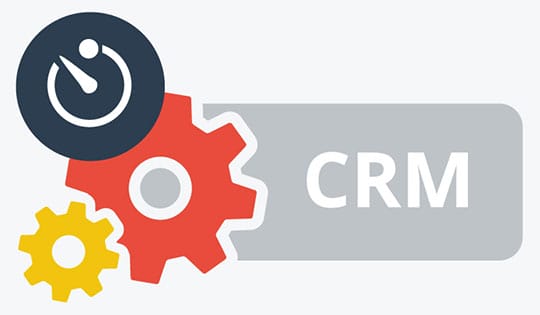Starting a new business can be daunting, and can feel like something of a minefield; with so much to think about how do you make sure that the right jobs are being prioritized, and the most important tasks fulfilled? With paperwork and other legalities taking up precious time the software side of things can often take a back seat – big mistake! It’s essential that you don’t assume the right software will just leap out at you, or that your company can get by on any old thing. Tech startups, in particular, need to be acutely aware of the software market, what’s likely to appeal to them, and the types of program that will assist with those early days. Luckily there are some amazing packages out there; you just need to know where to look…
Software Solutions: Where to Start
The most important considerations for any startup during its first phases are the kinds of software that will be essential, and the programs that will make life much easier. There are so many types of software available, many of which will take your productiveness to the next level; some, however, will be more applicable to your business than others. It is also a good idea to take note of whether a particular type of software will work well alongside your existing business plan and principles, integrating with existing systems and apps, or whether you’d need to alter aspects to get a better result from the program. As a startup you’ll need to be prepared to alter your course every now and again, and finding your feet can be a huge learning curve: let the technology guide you.

So, what’s first? You’re going to need some good software to get you up on your feet, and the right technology can really help you to stand out from the crowd. Document and report creation software, including Microsoft Office, is a given; very few businesses can function without such simple programming requirements. Next is communication: it is key to business, after all. You’re going to need a fantastic mail server to handle all of those initial emails, assist with large mail-outs, and to keep a track of everything you do. MailChimp is a particular favorite of all kinds of business, as it makes keeping in touch with clients and email campaigns much easier to handle. Think about what you’ll be communicating, to whom, and with what regularity; such software can often be the startup’s lifeline to the outside world. You’re also going to need accounting software to balance the books every month; paper is so last century. The right software will handle your figures, work out projections, and reduce the stresses that can often accompany bookkeeping. Programs such as QuickBooks, Freshbooks, Xero, and NetSuite are all noteworthy, and it will depend upon your business as to which you choose. We’re afraid that a little bit of research will be needed here, but it’s essential to ensure that your business runs smoothly, and in line with your initial vision.
The type of business that you’re establishing will choose the direction you move in next. ECommerce sites, for example, will need an efficient, and secure, way to trade while a graphic design business will need the right kind of software to handle the images, illustrations, or photographic data they’ll be using. Photoshop and Inkscape are popular, but are they right for you?
Shopify is often touted as being one of the best selling sites there is; functional, stylish, websites are only a click away. You’re also going to need marketing software, such as Searchmetrics, to oversee your SEO content management and production, and a reliable CRM, like Pipedrive, to handle your business’s needs. It seems like a lot, but there is no other way to compete with the big brands in your field.

Streamlining your Startup
Now that you’ve established the types of software that will be essential your business it’s time to consider the programs that will streamline your startup, making it much easier for you to focus on the task(s) at hand. Meetings and conference calls; they’re often tedious but they’re an essential part of business, so you need to be doing them right. Management software that attends to your schedule, while perhaps not vital, is a great way to streamline business and free yourself up for making important decisions. Diligent, for example, is a respected way to improve every meeting, handling data, improving security, and reducing the need for reams of paper floating about. Management software allows easy communication and makes every working day that little bit more efficient, reliable, and secure, as well as looking fantastic to clients. The great thing about a lot of techs is that you’re offered the chance to try before you buy, so you can work out what will really work for your company, and you. If you need a board portal introduction before deciding if it’s for you go ahead; this is your startup and your prerogative as a manager. Project management software is also a great investment; perhaps you don’t need a program to monitor your projects, but wouldn’t that be so much simpler if you had that kind of technology on board?

Trello creates accessible, visual representations of every project that you’re balancing while Freedcamp is ideal if you’re looking to scale up soon, and Producteev is flexible and works with you. Each of these software solutions has its own merits, and will make collaboration with customers and clients, as well as customer service management, much easier and, in turn, create a highly professional image of your startup.
Next is communication software; rather than emails, this time, we’ll focus on your telephone manner. A VoIP (Voice-over Internet Phone) system is a great way to increase your reach, improve the clarity of calls, and monitor your customer’s data far more efficiently. Such software can also make it much easier to apply a virtual phone number to your landline, and ensure you’re reachable wherever you are in the world. It’s so easy to neglect your telephone system when it comes to installing fancy new tech, but it really will help your startup to engage with clients and customers alike.

Congratulations on your startup tech business, and enjoy your voyage of discovery as you explore the types of software that will best help you to achieve your goals. If we could only give you one piece of advice it’s to choose scalable software; who wants to spend weeks getting to grips with a particular program, only to swap to something different as the business grows? Under these circumstances it’s important to think ahead; where is your business going? What will it need to support its growth? You’re doing fantastically; now choose the tech that will get you where you need to be.





